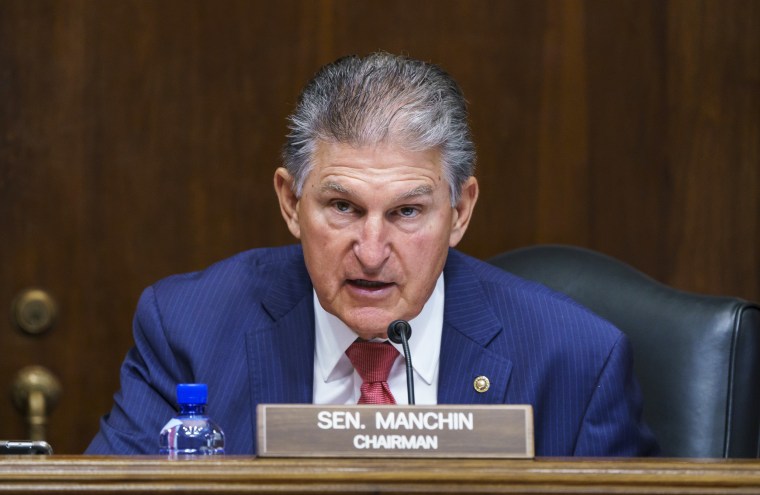The recent debate over a Jan. 6 commission was an important one for Sen. Joe Manchin (D-W.Va.), not just because he appeared to take the matter seriously, but also because it served as a test of his governing vision.
According to the conservative West Virginia Democrat, there is a platonic ideal to how a bill becomes a law: Democrats and Republicans identify a goal, eye a solution, engage in negotiations, offer concessions, and ultimately reach a bipartisan agreement. That is an exact summary of the process that culminated in a proposal for an independent Jan. 6 commission: if Manchin were literally writing a script as to how political disputes should be resolved, it would look exactly like this.
What's more, the senator was confident his approach would work, assuring reporters there was a "very, very good chance" the Senate would pass the proposal, adding that he believed there were at least "10 good, solid patriots" among Senate Republicans.
He was mistaken. Democrats shaped the bill to make the GOP happy, but Republicans killed it anyway. Manchin personally implored Senate Minority Leader Mitch McConnell (R-Ky.) to be more responsible, but his pleas were ignored.
Manchin's model was put to the test -- and it failed. Indeed, his own Republican colleagues effectively told him to come up with a new, more effective model.
Sen. Joe Manchin, D-W.Va., is making it clear that he doesn't want Democrats to advance key items on President Joe Biden's agenda without Republican votes. Manchin spoke with NBC News on Thursday about negotiations between the White House and Senate Republicans on an infrastructure package and whether he's ready to go it alone with members of his own party if talks collapse.
After falsely predicting that Republicans would help pass the bill to create a Jan. 6 commission, Manchin told NBC News' Garrett Haake that he expects the infrastructure talks to result in success. "I don't think this is going to fall apart," the senator said. "I really don't."
And if the negotiations fail because Republicans won't accept Biden's many concessions, will the West Virginian allow his party to pass a good bill anyway? Evidently, no.
Asked if he's ready to pass a budget reconciliation bill that could allow Democrats to advance an infrastructure measure without GOP support, Manchin said, "No, I don't think you should. I really don't. ... Right now, basically we need to be bipartisan."
For all intents and purposes, what Manchin is describing is a governing dynamic in which the majority party voluntarily gives veto power to the minority party.
As the New York Times' Michelle Goldberg put it in her new column, Manchin is part of a tiny contingent committed to the idea of bipartisanship "as a supreme good, which in practice means bowing to the wishes of a party that doesn't believe Joe Biden is a legitimate president and wants above all to see him fail."
One of the most fundamental tasks of political analysis is understanding what various officials want. For Manchin, the answer is strange but obvious: he wants Democrats and Republicans to put aside their differences, ignore their ideologies and substantive goals, join hands, and forge agreements.
Manchin's fixation on bipartisanship appears to be so unyielding that governing is no longer his principal priority.
This is by no means limited to infrastructure. The West Virginian also told NBC News yesterday that any voting rights legislation considered by the Senate must be bipartisan to gain his vote, saying that a single-party push for Democratic-sponsored legislation is a "disaster waiting to happen."
Well, that's certainly one way to look at it. Another way might be that Republicans curtailing voting rights as part of a single-party attack on the foundations of our democracy is a true "disaster waiting to happen."
Nevertheless, the senator's painful perspective offers fresh context for why President Biden keeps offering Republicans overly generous concessions: there's every reason to believe Joe Manchin won't let Democrats advance the White House's legislative agenda without making at least 10 GOP senators happy.

